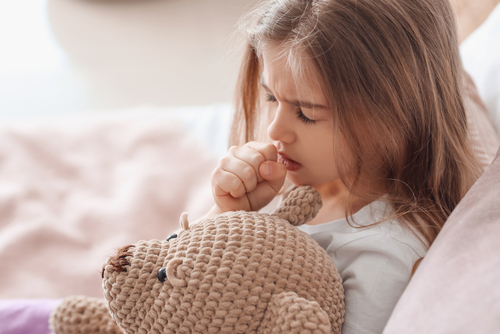
Information for Parents
Croup is an upper respiratory tract infection caused by a virus. It often causes mild symptoms that get better quickly. Sometimes the symptoms can be more serious and include problems with breathing.
Croup is common in young children, especially between the ages of 6 months and 3 years. The viral infection can pass from person to person, especially if there is close contact.
Croup is uncommon after the age of 6 years. Older children can get the same viruses but the breathing tube becomes wider and stronger so the virus doesn’t usually cause croup.
What are the symptoms of croup?
The symptoms of croup include:
Typically, during the day a child may have a croupy cough with cold symptoms. However, at night the cough and breathing symptoms often become worse.
Symptoms usually peak after 1-3 days then improve. A mild but irritating cough may last a further week or so. Most children with croup remain at home and soon recover.
The main concern is if severe narrowing of the breathing tube develops. If this occurs then breathing can become difficult. About 1 in 10 children with croup are admitted to hospital for observation.
What do I need to know?
Your child may become distressed with croup so you should be calm and reassuring. Crying can make things worse. Sit your child upright on your lap and let them find a comfortable position.
A steroid medicine such as dexamethasone is usually prescribed. Steroid medicines help to reduce inflammation. A single dose often eases symptoms within a few hours. Steroid medicines do not shorten the length of the illness but they are likely to reduce the severity of breathing symptoms.
When to be concerned
You should return to The Children’s Urgent Care Centre (0800-2000 Monday-Sunday) or Accident and Emergency (out of hours) if your child has any of the following symptoms:
Further Information
If you need any more information or advice between the hours of 0800-2000 Monday-Sunday please call The Children’s Urgent Care Centre on 02073906150.
Out of hours please contact NHS 111.
Call NHS 111 if you need medical help fast, but its not life threatening- for example, if you:
In case of emergency please call 999 or attend your local Children’s Emergency Department.